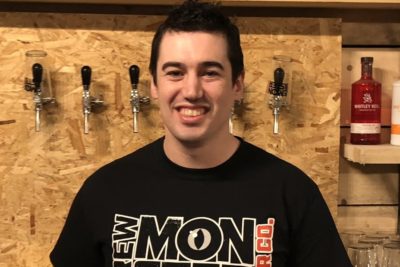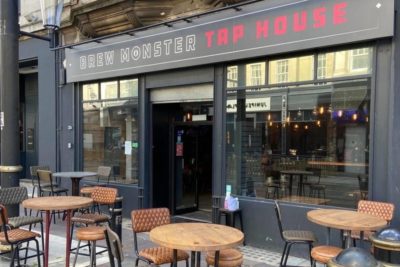Finance
Picking long-term stability over short-term revenue chasing

Brew Monster decided to forego potential short-term revenue to cement its long-term plans. The Welsh brewery used the lockdown to upgrade its pubs and open a new bar, rather than look at new opportunities.
“We decided to close the brewery,” said Glenn White, Brew Monster’s managing director. “No home pack. No home delivery. No online sales. Instead, let’s put everything into preparing for the world post-lockdown when things go back to normal.”
Weigh up whether to pivot or double-down
Brew Monster was growing strongly, but its plans changed dramatically when lockdown started and the management team had to decide how to react.
“A lot of the brewers we spoke to went down the road of trying to preserve business as much as possible, switching from traditional sales in bars and pubs to doing more online and home deliveries,” said Glenn.
He knew the home delivery space would be competitive and decided to gamble on lockdown only lasting a few months. That meant shutting down the brewery and concentrating on refitting existing pubs and preparing a new site.
Adding a kitchen to its flagship bar had the potential to double turnover and the addition of a new bar would bring a similar benefit.

Model the cost of different strategies
Brew Monster’s management team looked at the implications of changing the business model versus shutting down for several months. It was a choice between three or four months of extra revenue versus the long-term upside.
Deliveries might bring in £500 to £1,000 a week, but they would need to keep the brewery running. Revenue calculations suggested opening a kitchen would mean the flagship bar would turn over £10,000-£15,000 per week when it reopened.
The furlough scheme and hospitality grant provided short-term cash flow – and therefore the opportunity to make the choice.
Glenn furloughed the brewery staff and the remaining personnel helped with upgrading the existing bar and fitting out the new pub.
The downtime also gave Glenn, who is a trained accountant, an opportunity to implement new brewery management and accounting software – something he had struggled to find an opportunity to do.
Manage big strategic risks with operational changes
Glenn was prepared to invest during a recession because he felt it possible to manage the risks with careful operational oversight.
Lease negotiations are key. Glenn always tries to negotiate break clauses and rent-free periods, walking away from potential locations if they can’t get good terms.
“When it comes to the fit out, we don’t have a blank cheque for a designer,” added Glenn. “We do a lot of work ourselves, so we’re saving costs there. If certain areas go over budget then we look to save money in other places.”
Brew Monster launched in 2017 and had around a dozen staff members. The decision to double-down on existing plans and keep taking risks means the business should end 2020 in a far stronger position – with four venues operating.
Get clarity and suggested next steps on how to reduce your costs, run a lean business machine and de-risk your planning. Download our expert guide on the essential footsteps towards business financial recovery.


